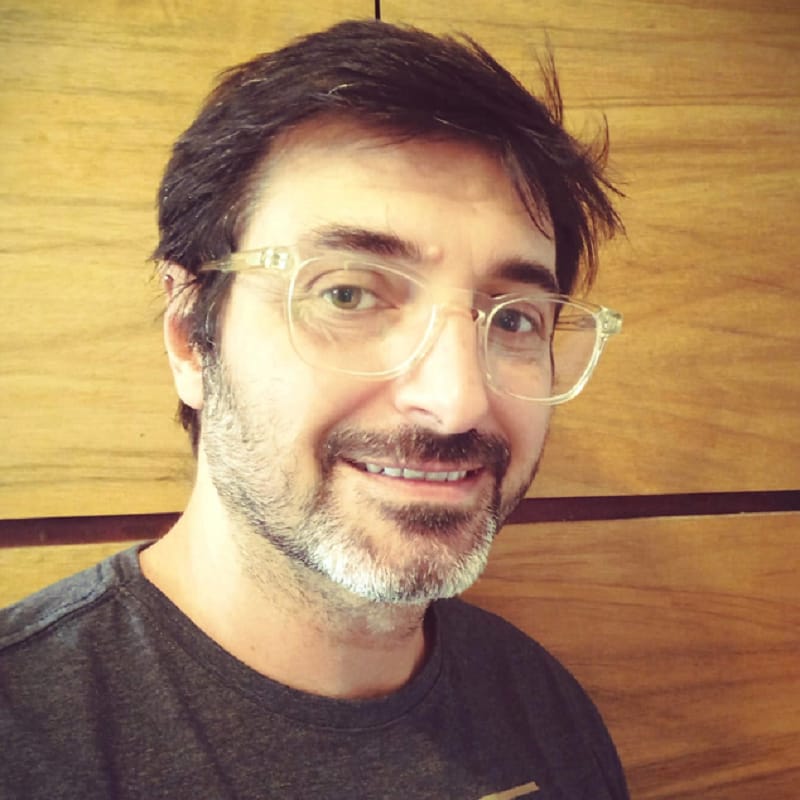Resumo e bio disponíveis em português e inglês / Abstract and bio available in portuguese and in english
Abstract
Resumo - PT
O Projeto de Moradia Estudantil indígena da UFSC, Coordenado pelo Professor de Arquitetura, Ricardo Socas Wiese, premiado pelo IAB/SC em 2023, é uma conquista resultante de um trabalho participativo através da extensão pelo LabProj - Laboratório de Projetos e que contou com mais de trinta universitários dos povos Xokleng, Kaingang, Guarani, Parintintin, Baré, Tikuna, Xacriabá, Kamahurá, Walapiti, Krenak, moradores de uma ocupação iniciada por mulheres indígenas da graduação no final de 2016, por não terem onde morar e nem condições de pagarem aluguel na Capital catarinense.
A existência de estudantes indígenas na UFSC só se tornou realidade há pouco mais de 10 anos, graças à política de Lei de Cotas e à implementação da ação afirmativa para indígenas pela própria instituição. Porém, as políticas de permanência para essa comunidade em sua chegada eram inexistentes. Desde então a luta e resistência por permanência e Moradia Estudantil para os povos indígenas na UFSC, que deu origem ao Movimento Maloca UFSC, tem sido cotidiana e de muita resistência.
A proposta de uma moradia que fosse pensada e construída para a permanência dos diversos povos indígenas universitários da UFSC, foi construída de forma coletiva e recebeu destaque também por evidenciar a presença indígena na universidade, dando visibilidade e valorizando a cultura dos povos originários, reclamando o direito à cidade e à universidade. Esse projeto é pioneiro pela inédita participação, na idealização de um conceito para a moradia estudantil indígena a partir das cosmovisões que próprios estudantes trazem dos seus povos e territórios.
O movimento almeja que esse projeto possa servir de base para o Ministério da Educação e gestores públicos das Universidades Federais, para implementar uma política nacional de Moradia Indígena, que vise a permanência, a promoção da interculturalidade e troca entre os saberes indígenas e a ciência e principalmente na formação dos indígenas universitários em nível de graduação e pós graduação no sentido de ser um espaço que fortaleça e proteja de fato a identidade dos estudantes Indígenas.
Abstract - EN
The UFSC Indigenous Student Housing Project, coordinated by Architecture Professor Ricardo Socas Wiese and awarded a prize by the IAB/SC in 2023, is an achievement resulting from participatory work through extension by LabProj - Project Laboratory, which involved more than thirty university students from the Xokleng peoples, Kaingang, Guarani, Parintintin, Baré, Tikuna, Xacriabá, Kamahurá, Walapiti and Krenak, residents of occupation started by indigenous undergraduate women at the end of 2016, because they had nowhere to live and couldn't afford to pay rent in the capital of Santa Catarina.
The existence of Indigenous students at UFSC only became a reality just over 10 years ago, thanks to the Quota Law policy and the implementation of affirmative action for Indigenous people by the institution itself. However, there were no permanence policies for this community when they arrived. Since then, the struggle and resistance for permanence and student housing for Indigenous people at UFSC, which gave rise to the Maloca UFSC Movement, has been daily and very resistant.
The proposal for a house designed and built for the various Indigenous peoples of the UFSC was built collectively and highlighted to highlight the Indigenous presence at the university, giving visibility and valuing the culture of the original peoples, claiming the right to the city and the university. This project is a pioneer for its unprecedented participation in the idealisation of a concept for Indigenous student housing based on the worldviews that the students bring from their peoples and territories.
The movement hopes that this project can serve as a basis for the Ministry of Education and public managers of Federal Universities to implement a national policy on Indigenous Housing aimed at permanence, the promotion of interculturality and exchange between Indigenous knowledge and science, and especially in the training of Indigenous university students at undergraduate and postgraduate level, in the sense of being a space that strengthens and protects the identity of Indigenous students.
Bio
Bio - PT
TBA
Bio - EN
TBA
VOLTAR
